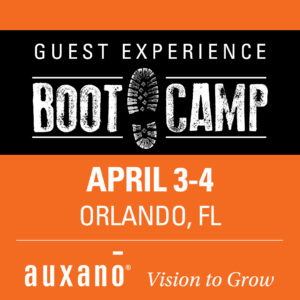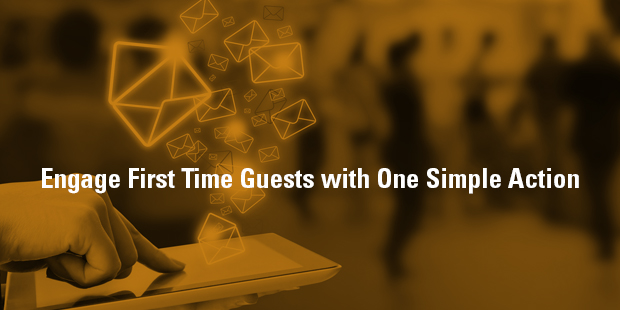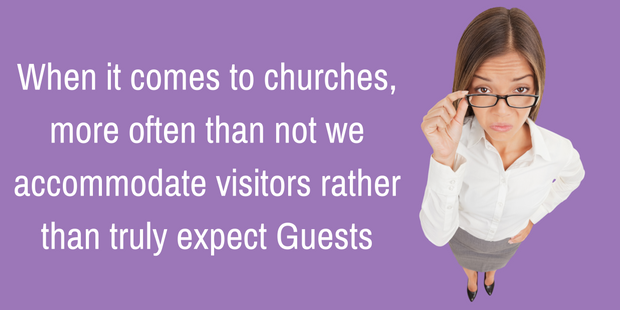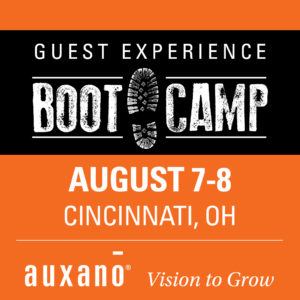Beginning today is a new weekly series posting content from one of the most innovative content sources in the church world: SUMS Remix Book Summaries for church leaders. SUMS Remix takes a practical problem in the church and looks at it with three solutions; and each solution is taken from a different book. As a church leader you get to scan relevant books based on practical tools and solutions to real ministry problems, not just by the cover of the book. Each post will have the edition number which shows the year and what number it is in the overall sequence. (SUMS provides 26 editions per year, delivered every other week to your inbox).
>> You can purchase a subscription to SUMS Remix here >>>
When it comes to churches, more often than not we accommodate visitors rather than truly expect Guests.
It may be a little thing to you, seeming like mere wordplay, but there is actually a powerful first impression that needs to change if your approach is to accommodate visitors on Sunday rather than to expect to have Guests at your church.
Do you have Visitor parking? Visitor packets? A Visitor’s Center? Do you welcome your visitors during the worship experience? And on and on…
The first step in creating a memorable Guest experience is to remove the word “visitor” from your vocabulary, never to be used again. Think about it, what kind of person is a visitor at your house, as opposed to a Guest?
It’s a small thing to be sure. But often changing one small word in your church’s vernacular can reflect a substantial mental shift, impacting the entire experience of someone new. One word change can draw someone back the next weekend, and one word can begin to close the proverbial back door of your church.
What would it look like to expect Guests this Sunday?
Guests come to your church, looking for a warm greeting, a smiling face, and an experience carefully crafted to welcome them and point them to Christ. This type of expectation does not require anything phony, manipulative, or in-your-face; just leaders who will welcome them as Guests with the most sincere, energizing, and loving experiences they can.
When it comes to understanding and welcoming Guests, the Disney organization has long been the “gold standard” – the best of the best. Instilled by Walt Disney in 1955 at the opening of Disneyland, expanded over the decades since at locations around the world, and refined today as both an art and a science, the Disney approach to Guest experiences provides a wealth of information that can help your church not just “accommodate visitors,” but to expect Guests.
Solution: Think Church-wide in your Guest Experience, not just Sunday morning.
Exceeding expectations rather than simply satisfying them is the cornerstone of the Disney approach to customer service. Be Our Guest outlines proven Disney best practices and processes for generating customer loyalty. One visit to a Disney park reveals that their Guest Experience extends beyond the front gates, and into the heart and mind of every employee at every level.
Be Our Guest takes you behind the scenes to help you learn new and creative ways to create and deliver a world-class Guest Experience.
A SIMPLE SOLUTION
“Be Our Guest” has been the invitation the Disney organization extends to people long before the song from Beauty and the Beast became a box office hit. It underscores an important element in the Disney vocabulary that customers are not referred to as customers or visitors, but rather as Guests. In the Disney nomenclature, the word “Guest” is capitalized and treated as a formal noun. It takes little effort to extend this line of thinking to your church:
What’s the difference between treating someone like a visitor, and treating someone like a Guest?
The obvious analogy is that we do things differently when we bring Guests into our home. We clean up the house. We dress up. We prepare something special to eat. We host them. We take care of their real needs. We even open the front door for them – every time.
Does your church expect Guests, or just accommodate visitors? How does Guest expectation extend beyond the front doors on a Sunday morning, but even into the office suite on a Thursday afternoon?
Realizing that God is bringing Guests to your church has to be the starting point, the foundation on which all else is built. Exceeding Guest expectations is the standard call to duty for every leader at every level and on every day.
At Disney, every leader at every level and on every day is a part of the Guest Services Team.
Exceeding Guest’s expectations is Disney’s service strategy, and paying attention to every detail is the tactic by which it is accomplished.
Disney’s Quality Service Compass encapsulates the organization-wide model that demonstrates Quality Service. It is the production process through which practical magic is created. In its essence, the compass can be used to create a shared vision of service that aligns the major elements that every organization shares – its people, infrastructure, and processes – in a cohesive, comprehensive effort to deliver that vision.
The Quality Service Compass has four main points centered on our service objective: to exceed Guest expectations.
- Guestology – the art and science of knowing customers.
• Quality Standards – establishing the criteria for actions necessary to accomplish the service strategy, and the measures of Service Quality.
- Delivery Systems – the systems that deliver service: employees, the setting, and processes.
- Integration – combining and aligning delivery systems, creating a matrix to troubleshoot problems and benchmark practices.
– Disney Institute with Theodore Kinni, Be Our Guest
A NEXT STEP
At your next leadership team meeting, review the four points of Disney’s Quality Service Compass outlined above. Using the introductory questions suggested below, ask, “What is working within our Welcoming Teams?” “What is missing or confused?”
Guestology; Understand your Guest Profile
- Do you know who your Guests are? Do you collect basic demographic information from Guests? What does a study of the last 12 months of this information reveal about your Guests?
- Do you collect additional information about your Guests (through a website survey, etc.? Do you know about their attitudes, lifestyles, values, and opinions? What does a study of the last 12 months of this type of information reveal about your Guests?)
Integration: Extend your mission to the Guest Services teams
- How can you extend your church’s mission so that your Guest Services teams understand how their role is in alignment?
- How is your mission seen through your Guest Services teams by the Guests they serve?
Standards: Define Guest Service
- Do you have service quality standards that ensure the consistent delivery of Guest services?
- Do your Guest Services standards reflect the values of your church?
- Do your Guest Service teams use the standards as filters through which they prioritize the actions that contribute to a memorable Guest Experience?
Delivery: Establish systems that welcome Guests
- Your Guest Service Team Members are the first and most important part of your Guest Service delivery system. They are the heart and soul of your Guest Experience. How do you select, train and evaluate your team members? What steps have you taken to create and maintain
a culture of hospitality that nurtures your team members and encourages them to deliver a memorable Guest Experience?
- How does your Environment (the physical and virtual resources of your organization) contribute to the delivery of a memorable Guest Experience? Do you regularly evaluate your setting?
- Do you have a Process (the various series of operations used to deliver a memorable Guest Experience) that your Guest Service Teams understand and follow? Is this process regularly evaluated and improved as needed?
Finally, lead everyone in the meeting to identify one next step to take in THEIR ministry area or leadership to welcome Guests.
Taken from SUMS Remix 20-1, published August 2015.
>>> You can purchase a subscription to SUMS Remix here >>>

Want to learn how to create an EXCEPTIONAL Guest Experience at your church? Check out Auxano’s Guest Experience Boot Camp, coming to Orlando, FL on April 3-4.

Tags: Be Our Guest, Church Guest Experiences, Disney Institute, Guest Experiences, SUMS Remix, Theodore Kinni
|
What is MyVisionRoom? > | Back to Execution >


























